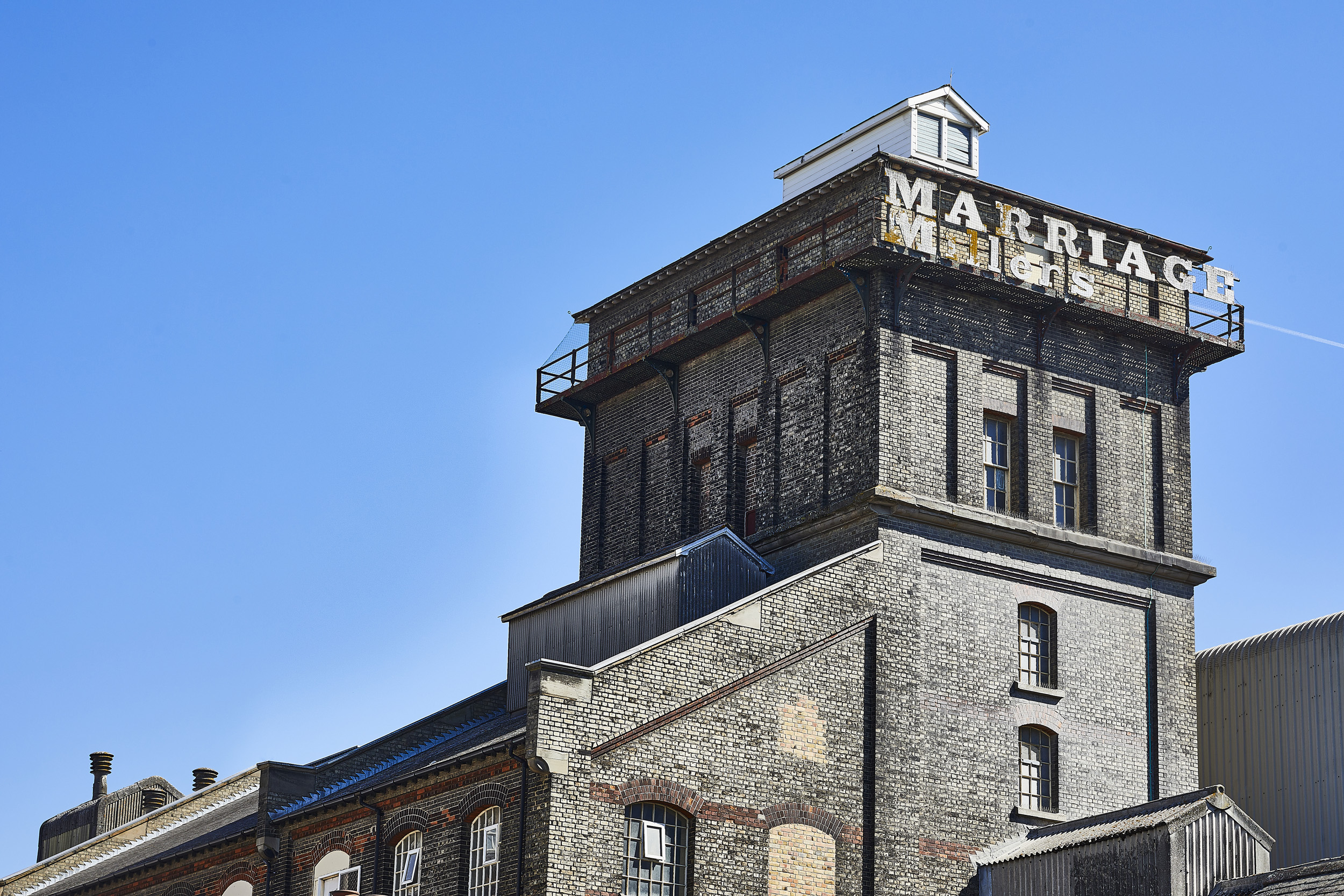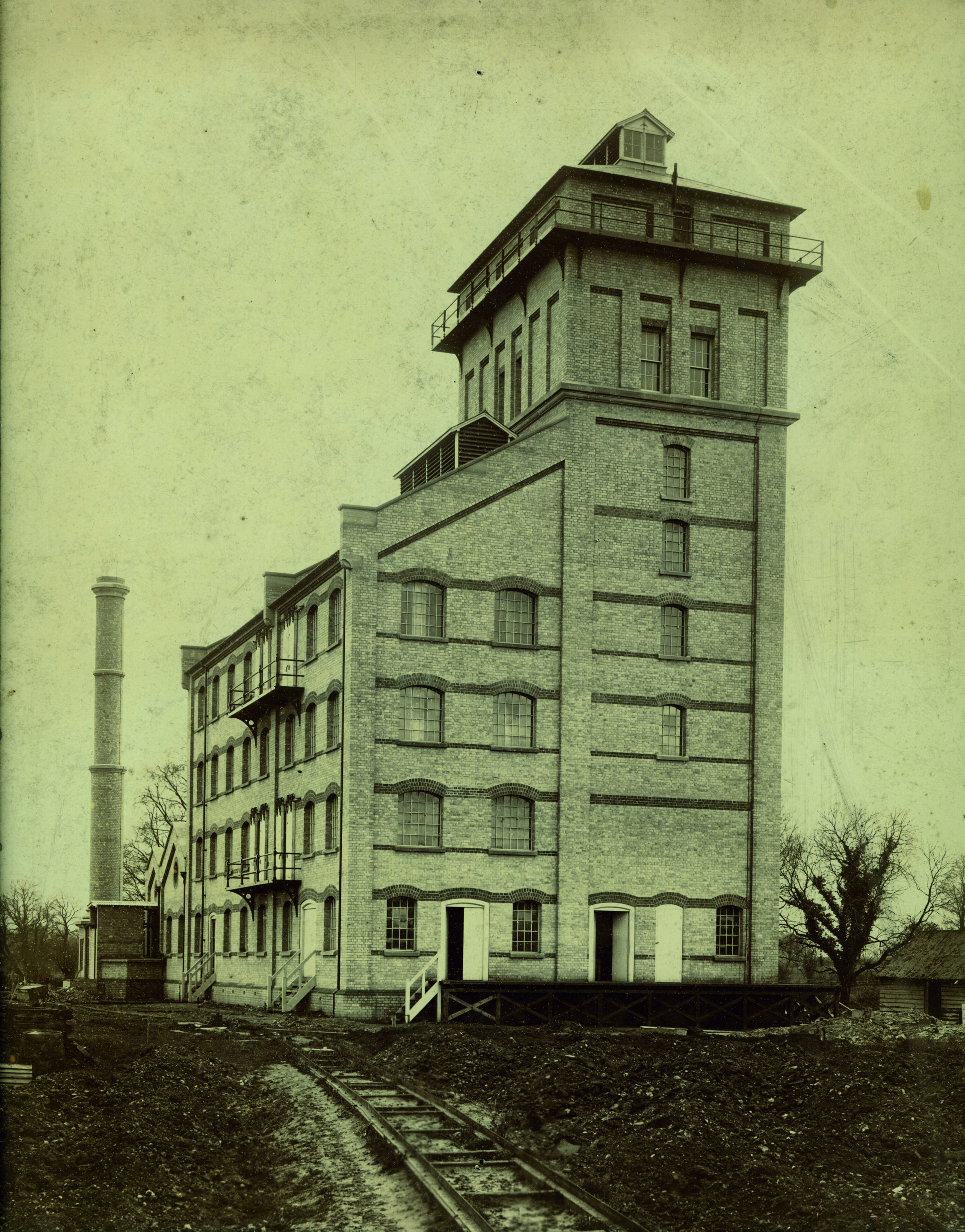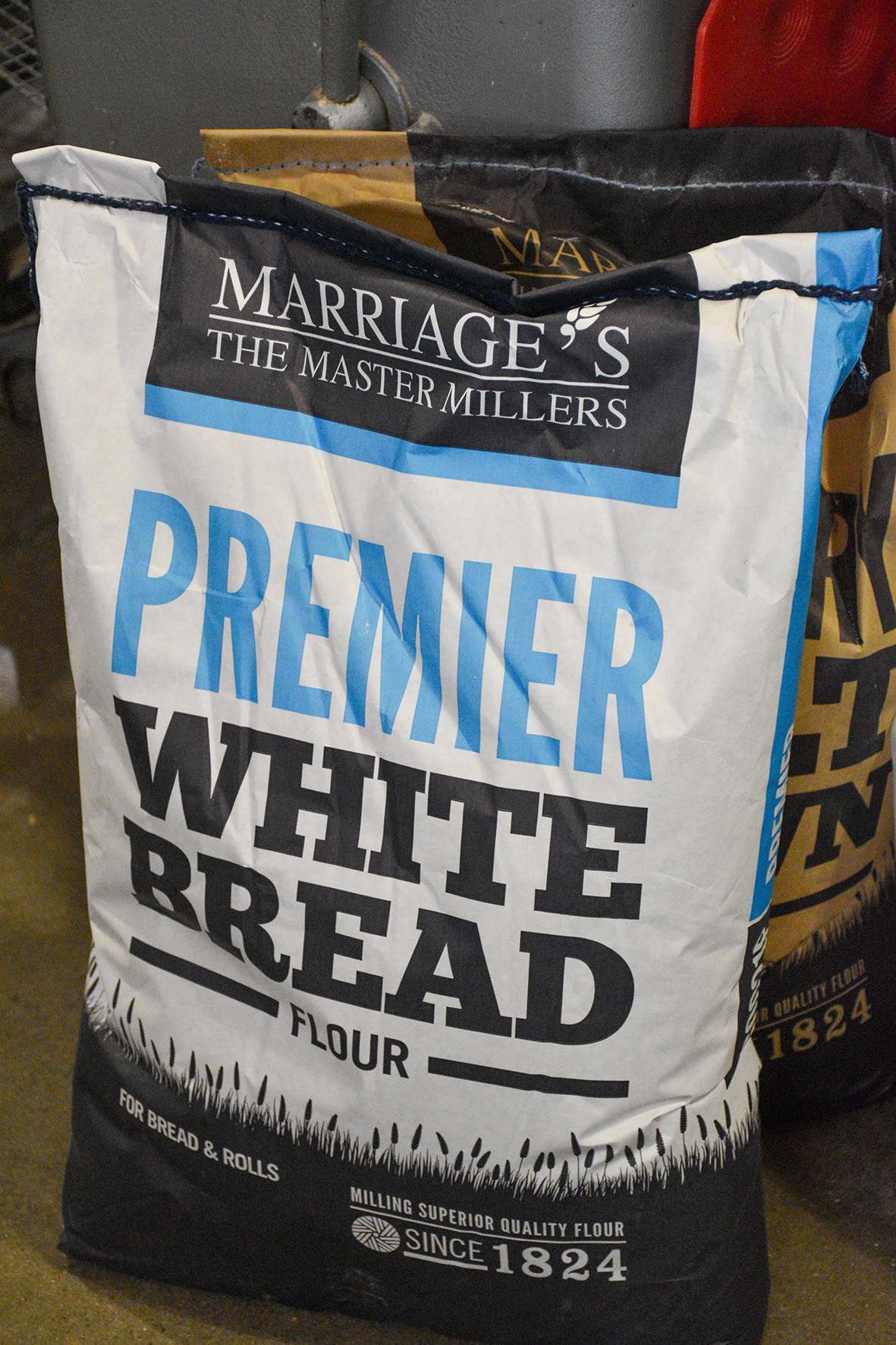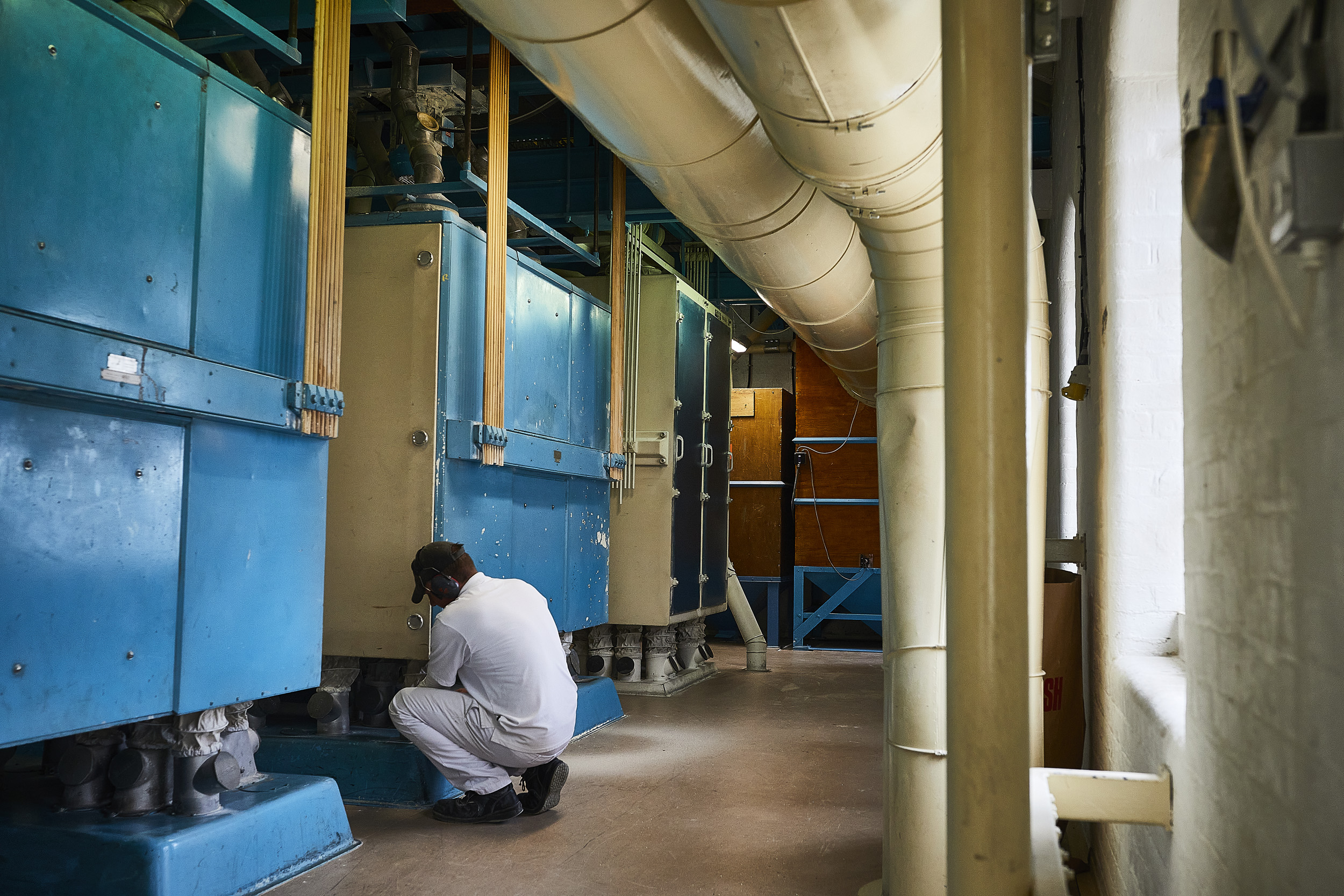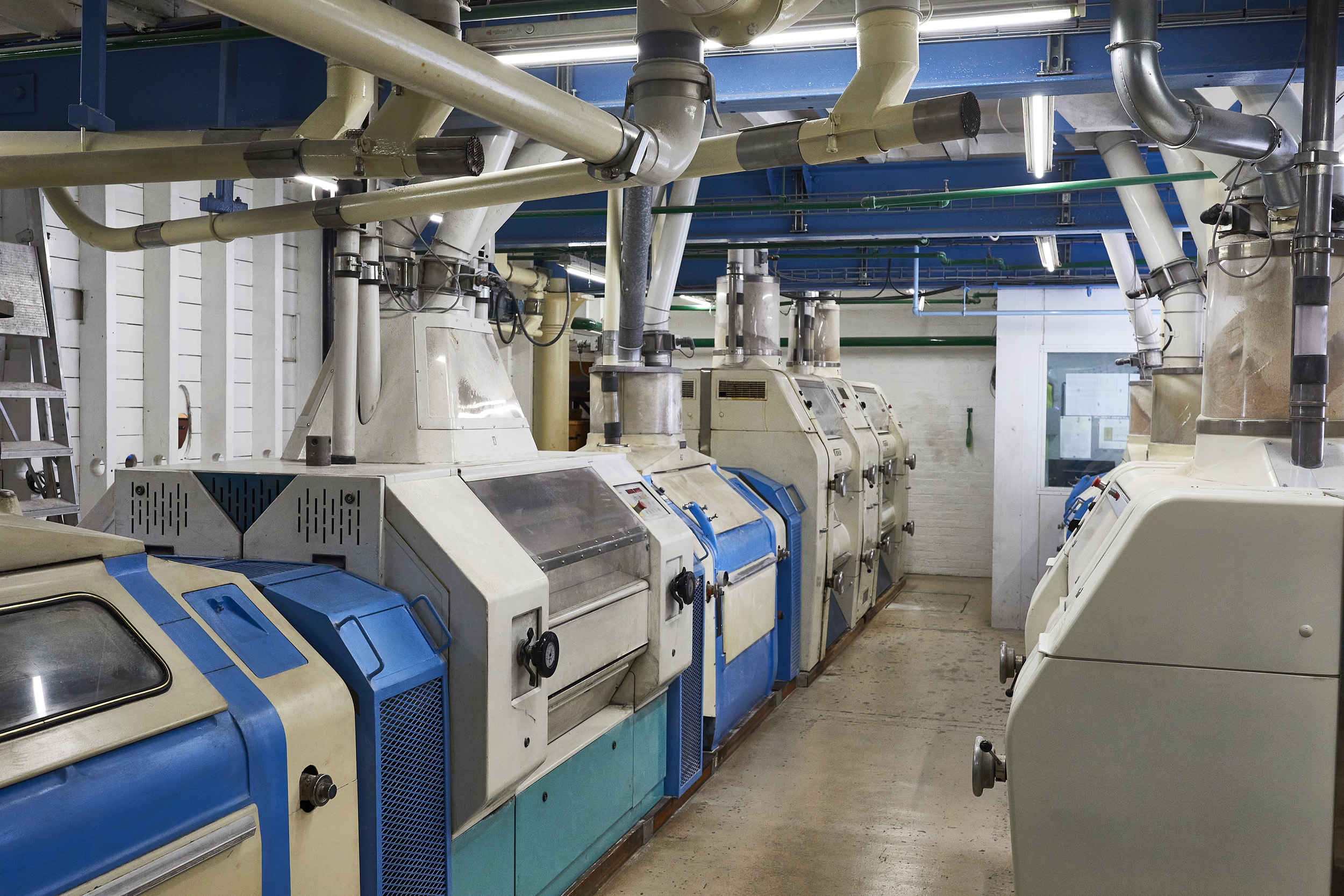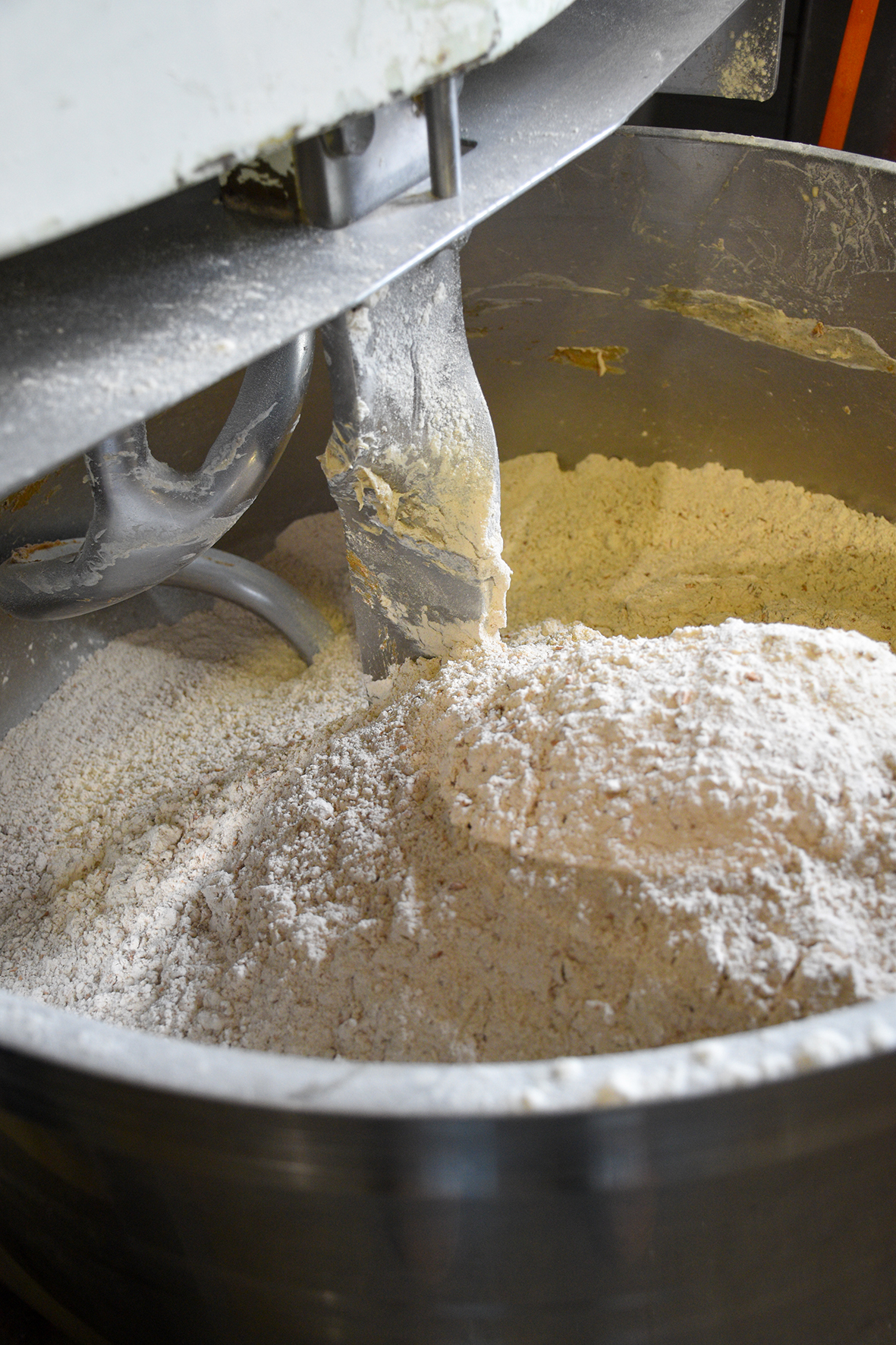marriages millers
A new venture for the SFH on tour collection, myself and our head baker Lee took a trip to Marriage’s Millers in Chelmsford. Marriage’s are celebrating their 200th anniversary this year and they invited us for a tour of their site. Marriage’s supply us with all our flour for the bakery and Lee, swears by it.
We took the small trip down to Chelmsford, and, to be honest, the location of the Mill was not where we expected. Naively we both expected it to be in a field or on farmland. This was not the case, as it was actually in central Chelmsford. It’s actually rather that the city was probably built around the Mill, with a couple of the traditional buildings still standing around the mill too (albeit one of these has been turned into apartments). The Mill still had it’s rustic feel amongst the modern city life and industrialisation.
We were greated by Simon who would be our tour guide and he delivered a brilliant presentation about the history of Marriages. I’ll be honest, I went into this not actually knowing much at all about the tradition of milling and came out of the presentation with a lot of new information. Here’s some of the facts, history and Marriage’s focus:
As I mentioned earlier, Marriage’s are celebrating their 200th anniversary this year, which is incredible! The business has passed through generations since 1824, the original water mill transitioning to a steam mill and eventually an electric powered one like we see today.
I’ll talk about the milling process later on as I briefly touch on the tour.
Another interesting point that came out of the presentation was the relationship Marriage’s build with farmers and growers. Their focus is on quality and Lee agreed, it definitely shows with the end product. The relationships they build with farmers extends to the contracts and payment process, for example:
If a farmer agrees a standard of grain with Marriage’s but actually produces a greater quality grain, Marriage’s will pay them more, going above and beyond the agreed contract rate. This little perk for growers means that Marriage’s receive the best grain and often growers will hold back their best just for Marriage’s. They also pay their growers quickly, rewarding them for a top-quality product.
Talking of quality, Marriage’s main focus is quality, focusing on quality over volume, maintaining a consistent, high-quality product throughout the milling process. They do this by constant testing of the grain, they employ an on-site labaratory, testing the moisture content, protein levels and even ash content to ensure consistency and quality. By monitoring these key parameters they can guarantee that their flour meets the standards customers expect.
Not only do they have a lab, they also have an on-site bakery, skilled baker Kelvin conducts regular baking tests, assessing the flour’s performance in terms of texture, rise and flavour and providing invaluable feedback to the milling team. He’s also on hand to answer any baking queries from customers.
Simon led us on a tour of the mill, it’s much bigger than I expected, but he actually explained that Marriage’s is one of the smaller mills around the area, which, blew my mind a little. I can’t remember the exact tonnage of flour they produce every hour, but it was a huge amount.
We were led through the milling process, which in the modern era is a roller mill process. Roller mills involve the use of rollers that crush and separate the grains into various components.
Here’s a brief summary of the process:
The wheat undergoes a thorough cleaning process to remove any impurities such as dirt, dust and foreign materials. It is then conditioned to optimize moisture content, which is crucial for the consistent milling.
The milling process employs a blend of traditional millstones (how they produce their stoneblends) and the modern roller techniques, the wheat is carefully ground to produce flour of varying textures and fineness, roller milling ensures uniformity and consistency, whilst the traditional stone milling retains natural flavours.
Sifting and separating then takes place, the flour undegoes this sifting process to remove any remaining bran or germ particles and achieve the desired level of refinement.
As I mentioned earlier, quality control testing takes place constantly alongside the milling journey and will also take place in the bakery post production.
Once it passes all of the quality standards and controls it’s bagged up (automatically) in various sizes and formats and event palletised via machine!
We use Marriage’s flour in all of our bakes in the bakery, as I said, Lee swears by the quality of the flour and suggested it was the best flour he’s ever used.
Marriage’s celebrate 200 years, you can check out their website which has their story, top tips and recipes and even an online shop area. Thanks to the team at Marriage’s for inviting us over, we hope the celebrations go well.

